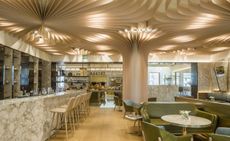At Kazakh café Fika, whimsical interiors meet Soviet-era industrial detailing
Fika, designed by Studio NAAW, is a joyful café and restaurant in Almaty, Kazakhstan
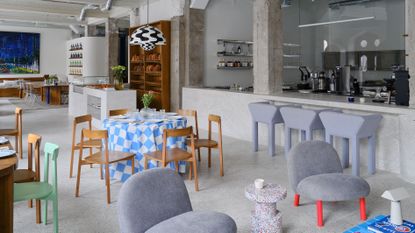
Almaty, Kazakhstan’s largest and most developed city, captivates for its dramatic contrast between a modern skyline and the scenic Trans-Ili Alatau mountains. It’s this rare symbiotic relationship between urban and natural landscapes that keeps on inspiring local designers and artisans to innovate, as is evident in Studio NAAW’s recent design project for Fika.
Step inside Fika, designed by Studio NAAW
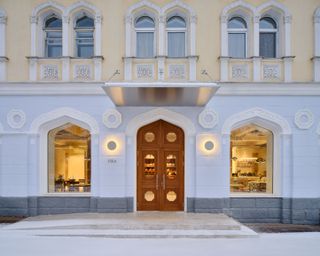
Located within the historical TurkSib Railway Workers’ House, a Soviet-era building that embodies the region’s industrial and architectural heritage, Fika’s design offers a beautiful blend of the old and new. The Kazakhstani architecture and design studio NAAW preserved the intricate 1950s Soviet-style ceiling mouldings and merged them with structural concrete detailing, reflecting a new wave of design in the city. The windows were also replaced with wooden metal frames, offering city views and allowing ample natural light to come in.
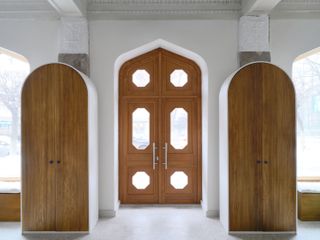
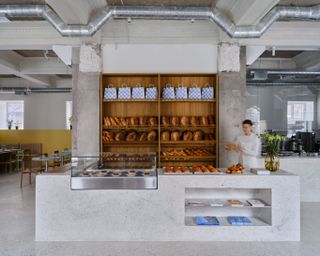
Fika’s spacious interior is thoughtfully divided into several zones based on function and seating type. Upon entering, visitors are welcomed by a selection of baked goods and a whimsical atmosphere. The left side features a bar with small coffee seating, an open bakery, armchairs, and several large tables. The breakfast menu offers a variety of brunch options, from any-style egg plates to bread and pastries, as well as delicious sweet treats.
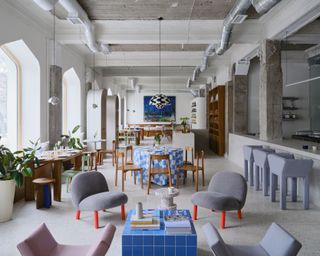
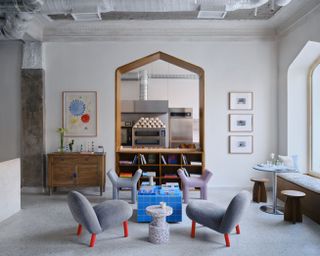
The right side has a communal table for social gatherings and bench seating perched along the wall, close to wine shelves. The lunch and dinner menu offers everything from small sharing plates to larger dishes, such as soups and pasta. Towards the back of the room, a yellow-painted dado wall with monolithic sofas emerges, offering south-facing windows.
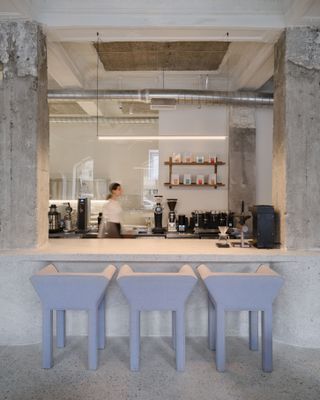
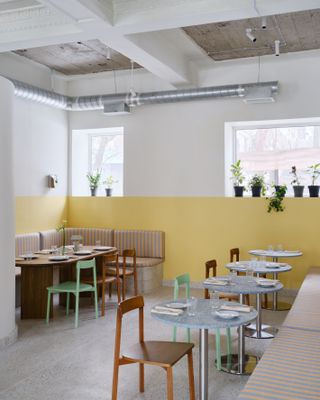
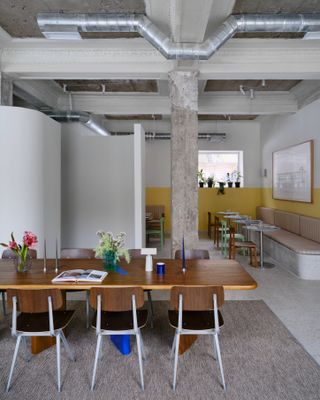
Furniture for the project was designed by NAAW Studio, inspired by the founders’ trips to Copenhagen, and crafted by local artisans using locally sourced wood for tables, stools, and cabinets. The use of upcycled plastic tables sourced from local recyclers is also noteworthy. The design also includes Danish pieces such as Hay chairs and lamps, &tradition chandeliers, and a Normann Copenhagen coffee table, which merge international design with the local context.
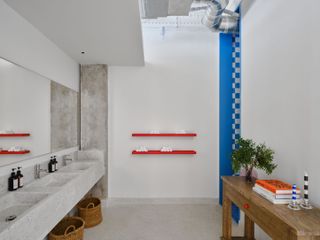
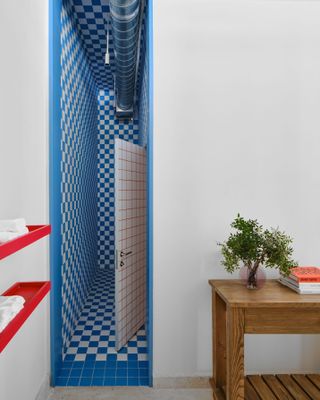
Art plays a significant role in Fika, with Nurbol Nurakhmet’s monumental work Constellation (2018) depicting the city of Almaty, incorporating a map with stars representing crucial points for its citizens. Another abstract work, by Assel Nussipkozhanova, addresses the contemporary agenda of artists in Kazakhstan and their relationship with cultural codes.
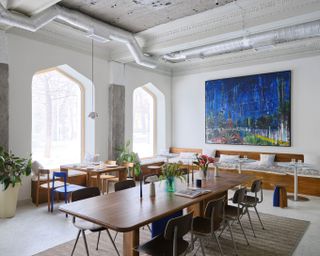
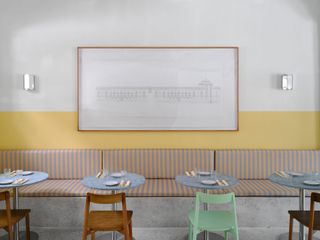
Wallpaper* Newsletter
Receive our daily digest of inspiration, escapism and design stories from around the world direct to your inbox.
Sofia de la Cruz is the Travel Editor at Wallpaper*. She was born in Madrid, Spain but moved to London when she was 14 years old. Being exposed to the city’s creative pulse at such a young age shaped her into the inquisitive professional she is today. Before joining the Wallpaper* team in 2023, she worked for Hypebae and Hypebeast UK, where she focused on the intersection of art, fashion, and culture. Additionally, she contributed to Futurevvorld by covering a variety of sustainability topics.
-
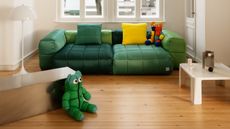 Playful new furniture from Aspesi and Vetsak is dressed to impress
Playful new furniture from Aspesi and Vetsak is dressed to impressThe ‘Transformation’ collection includes a chunky, modular Vetsak sofa, pillows and blankets clad in Aspesi outerwear fabrics
By Simon Mills Published
-
 The new Beetle? PIX Moving’s Robo-EV is an insectoid concept car for urban travel
The new Beetle? PIX Moving’s Robo-EV is an insectoid concept car for urban travelMelding generative design, 3D printing and an onboard AI, the Robo-EV crams as much future tech as possible into a tiny four-wheeled footprint
By Jonathan Bell Published
-
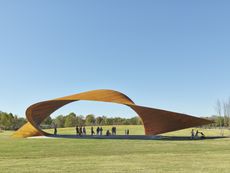 We walk through Luther George Park and its new undulating pavilion
We walk through Luther George Park and its new undulating pavilionLuther George Park by Trahan Architects and landscape firm SMM Architects opens to the public, showcasing a striking new pavilion installation – take a first look
By Ellie Stathaki Published
